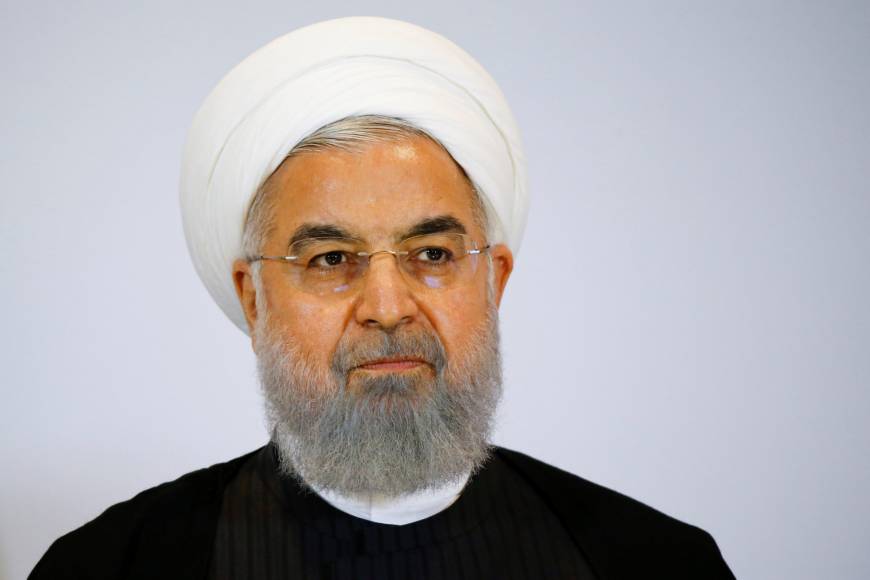Systemic corruption threatens Tehran regime’s future

For many years, Iranian institutions have suffered from endemic and rampant financial and administrative corruption. Despite this, successive governments have always presented themselves as being blameless, transparent and free from any trace of wrongdoing. For example, former President Mahmoud Ahmadinejad described his government as the most transparent since the 1979 revolution. In reality, however, a well-known fact among the Iranian people is that regime officials are extensively involved in financial corruption and embezzlement, with plentiful evidence available. The best-known large-scale case in recent years was the embezzlement of more than $3 billion by one senior regime official, who fled the country. This is in addition to the corruption in government programs, such as the Mehr housing project, among others.
The current administration of President Hassan Rouhani, like previous ones, regularly claims that it is working to fight corruption and to punish the corrupt. However, as Iranians are well aware, this is pure propaganda, with the government systemically corrupt from top to bottom. Also, the government is unfamiliar with concepts such as integrity, transparency or accountability, except in the sphere of abstract political language for propaganda purposes.
One recent example highlights how corruption hampers Iranian society. The Iranian Parliament’s Research Center announced in a report published last Wednesday that 59 percent of the National Development Fund’s (NDF) budget was spent on obtaining licenses or introducing amendments to different laws. This expenditure is beyond the NDF’s routine business set out in the internal statutes supposedly governing its outlay. Withdrawals from the NDF can only be carried out after first obtaining direct permission from the supreme leader or as a result of legislative procedures undertaken by the Iranian Parliament.
Iranian authorities arrested Ahmad Aragchi, the former deputy chairman of the Central Bank of Iran’s hard currency section and an employee of one of Rouhani’s aides. This was in addition to four other hard currency brokers who were detained by Iran’s security authorities for conducting illegal activities or, possibly more accurately, conducting illicit activities in which regime officials didn’t receive their usual cut of the profits. Similarly, a clerk at a currency exchange office found to be involved in illicit deals was summoned for questioning and detained in custody pending trial.
Another subject angering many in Iran is the astronomical salaries paid to regime officials, which has been one of the biggest domestic scandals to hit the Rouhani administration. More than 397 high-level government administration personnel have been exposed due to their colossal salaries and massive debts, which exceed 300 billion tomans ($14 million). Among the senior officials caught up in this scandal was the CEO of Bank Mellat, who reportedly engaged in massive embezzlement and corruption with the help of political allies such as Hossein Fereydoun, who is Rouhani’s younger brother and aide.
Another indication of the extent of corruption within Rouhani’s government is the record-breaking sums embezzled, stolen or otherwise misappropriated, with reports suggesting that $1.17 billion of the country’s oil revenues, which the economy depends on, were fraudulently siphoned off and apparently “disappeared.” Nobody yet knows how this vast sum of money was spent.
Despite the regime’s efforts to present itself as a shining model of financial probity, global statistics suggest otherwise. According to Trading Economics’ Corruption Index, Iran ranks 138th out of 175 countries, while the 2018 Corruption Perceptions Index reported by Transparency International states that Iran’s ranking averaged 125.38 from 2003 to 2018, reaching an all-time high of 168 in 2009 and a record low of 78 in 2003. Its current ranking places it alongside Somalia, Afghanistan and Sudan.
Despite the regime’s efforts to present itself as a shining model of financial probity, global statistics suggest otherwise.
Dr. Mohammed Al-Sulami
All sectors of Iran’s economy are blighted by this systemic corruption and mismanagement. The National Iranian Petrochemical Industries Company (NIPIC) revealed in March that the Petrochemical Commercial Company (PCC), the centerpiece of a major financial scandal being investigated by a Tehran court, had failed to repay €500 million ($554 million) of debts incurred since 2013.
The NIPIC statement contradicted an earlier announcement by Tehran’s prosecutor Abbas Jafari Dolatabadi, who insisted that no embezzlement had taken place in the case. Instead, Dolatabadi claimed that the suspected officials had simply “mishandled” revenues accrued from Iran’s petrochemical exports, with the interest accrued from the “mishandling” (or laundering) of these funds via their bank accounts reaching €4 million.
Several high-level PCC management personnel are among the suspects in the graft case, which is linked to Iran’s sanctions-evading operations. They are also currently being probed for alleged corruption in cases that took place before the 2015 nuclear deal that lifted international sanctions on Iran.
In other corruption-related news, which led to widespread public anger toward Rouhani’s administration, the head of the Iranian Parliament’s Court of Audit, Adel Azer, recently revealed that more than 11 billion tomans raised from local natural gas sales had not been deposited in the state treasury, urging that measures needed to be taken to remedy the situation.
All these factors suggest that, as sanctions continue to send Iran’s economy into a tailspin and as the regime continues to spend billions on regional militias and wars, the Iranian people are unlikely to tolerate the woeful and corrupt ruling system much longer.
- Dr. Mohammed Al-Sulami is Head of the International Institute for Iranian Studies (Rasanah). Twitter: @mohalsulami










































